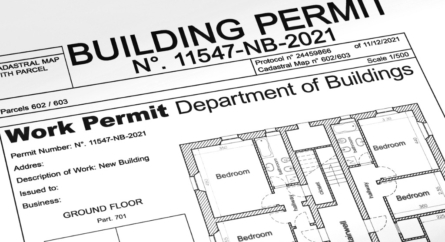Bond Bill Allows By-Right Accessory Dwelling Units
On August 6, 2024, Governor Healey signed “The Affordable Homes Act” into law. This ambitious bill authorizes $5.16B and encompasses various policies aimed at spurring housing development. It is anticipated that the new legislation will support private and public efforts to preserve, rehabilitate and create approximately 65,000 homes within the next five years.
The legislation takes effect in February 2025 and includes a key change to G.L. c. 40A (the Zoning Enabling Act) that is expected to contribute to the creation of approximately 8,000 to 10,000 accessory dwelling units (“ADUs”) as of right in single-family residential zoning districts.
To be permitted as of right under the new law, an ADU must be located on the same lot as a principal dwelling; be no more than one-half the square footage of the principal dwelling or 900 square feet, whichever is less; include its own sleeping, cooking and bathroom facilities; and maintain a separate entrance. By-right, ADUs can be attached to, or detached from, a principal dwelling, but are limited to one per lot. The law requires that ADUs comply with dimensional setbacks and other bulk and height requirements. The law also mandates that municipalities allow applicants to seek a special permit for more than one accessory dwelling unit on a lot.
Municipalities can require ADUs to comply with Title 5 requirements for septic systems and may also restrict or prohibit the short-term rental of ADUs but cannot require the lot owner to occupy either the principal structure or the ADU.
As part of the City of Worcester’s many noteworthy initiatives to create much needed housing, far ahead of the new legislation, in January 2024 the City of Worcester enacted permissive ADU zoning with many provisions that are similar to the new law. However, the Worcester ordinance requires an owner to occupy one of the dwelling units and requires an affidavit that they will do so. Similar ownership restrictions are often found in other municipalities’ ordinances and bylaws that permit ADUs. While these types of restrictions cannot be enforced under the new law, a requirement that the principal building and ADU remain in common ownership, such as in Worcester’s ADU ordinance, is likely permitted under the new law and the restrictions on short-term rentals are expressly permitted under the new legislation.
An important aspect to monitor in the coming months is that the Executive Office of Housing and Livable Communities has the authority to issue guidelines or regulations to implement this law.
For questions or assistance regarding Accessory Dwelling Units, please contact the author or your Bowditch attorney.
Categorized: Affordable Housing, Zoning
Tagged In: affordable housing, housing development, livable communities, zoning










